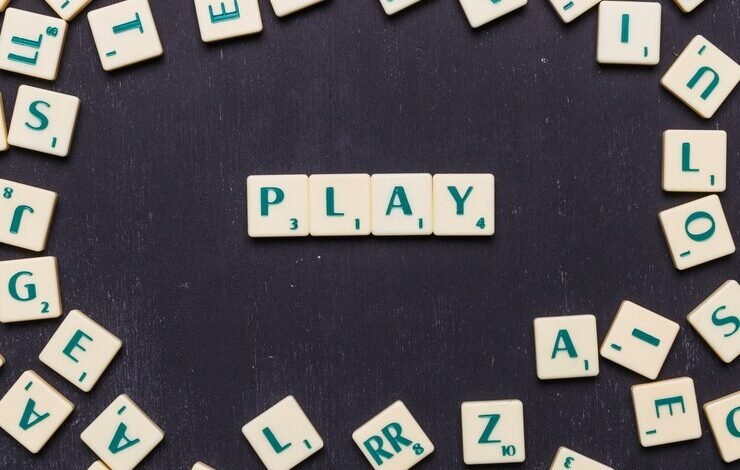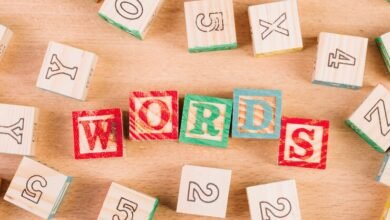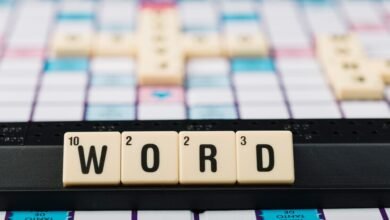Unlock the Power of Wordplays: A Guide to Creative Expression

Introduction to Wordplays
In the vast universe of language, wordplays stand out as a delightful playground where creativity meets wit. These clever twists and turns of words have the power to entertain, educate, and engage people of all ages. Whether you’re a writer, a language enthusiast, or just someone who loves a good pun, wordplays offer endless possibilities for fun and expression. In this blog post, we’ll explore the fascinating world of wordplays, from their historical roots to their modern-day applications. Get ready to discover the magic of linguistic creativity and humor.
Historical Perspective wordplays
Wordplays have been around for as long as language itself. Ancient civilizations, including the Egyptians and Greeks, used wordplays in their literature and oral traditions. The evolution of wordplays can be traced through various literary periods, from the witty dialogues of Shakespearean plays to the clever quips of modern-day comedians. Understanding the historical context of wordplays helps us appreciate their timeless appeal and the role they’ve played in shaping our linguistic landscape.
Types of Wordplays
Wordplays come in many forms, each with its unique charm and appeal. Here are some of the most popular types:
Puns
Puns are perhaps the most well-known form of wordplay. They involve a play on words where a word or phrase has multiple meanings or sounds similar to another word. For example, “I used to be a baker, but I couldn’t make enough dough.”
Anagrams
Anagrams involve rearranging the letters of a word or phrase to create a new word or phrase. For instance, “listen” can be rearranged to form “silent.” This type of wordplay challenges our ability to see connections between seemingly unrelated words.
Palindromes
Palindromes are words or phrases that read the same backward as forward. Examples include “racecar” and “A man, a plan, a canal, Panama.” These wordplays showcase the symmetrical beauty of language.
Spoonerisms
Spoonerisms involve swapping the initial sounds of two words to create humorous new phrases. For example, “You have hissed all my mystery lectures” instead of “You have missed all my history lectures.”
Acronyms
Acronyms use the initial letters of words to create a new term. For instance, “NASA” stands for the National Aeronautics and Space Administration. Acronyms can add a layer of playfulness to language.
The Art of Crafting Wordplays
Creating effective wordplays requires a blend of creativity, wit, and linguistic knowledge. Here are some tips for writers and language enthusiasts looking to craft their own wordplays:
Play with Sounds
Experiment with phonetics to create puns or spoonerisms. Pay attention to homophones—words that sound alike but have different meanings.
Rearrange Letters
Challenge yourself to find anagrams by shuffling the letters of words or phrases. This exercise can help you see language from a new perspective.
Explore Symmetry
Look for palindromic patterns in words and phrases. Creating palindromes can be a fun way to stretch your linguistic skills.
Combine Concepts
Blend different ideas or concepts to form clever acronyms that convey a deeper meaning or humor.
Wordplays in Daily Life

Wordplays aren’t confined to literature and linguistics—they permeate our daily lives. Social media, advertising, and everyday conversations are rich with examples of wordplays:
Social Media
Platforms like Twitter and Instagram thrive on witty wordplays. Hashtags, captions, and tweets often contain puns or clever twists to engage followers.
Advertising
Marketers use wordplays to create memorable slogans and brand names. For example, a hair salon might use the slogan “Hair today, gone tomorrow.”
Conversations
In casual conversations, people often use puns and other wordplays to lighten the mood and make interactions more enjoyable.
Impact of Technology wordplays
Technology has revolutionized the creation and dissemination of wordplays. Digital tools and platforms enable us to share and enjoy linguistic humor on a global scale:
Online Wordplay Generators
Websites and apps offer tools to generate puns, anagrams, and other wordplays, making it easier for anyone to create and share linguistic humor.
Social Media Platforms
Social media provides a platform for wordplay enthusiasts to connect, share, and engage with a community of like-minded individuals.
Memes and Viral Content
Wordplays often form the basis of viral memes and online content, demonstrating the enduring appeal of linguistic creativity in the digital age.
Benefits of Wordplays
Wordplays offer numerous benefits beyond entertainment. Here are some cognitive and educational advantages:
Cognitive Benefits
Engaging in wordplays stimulates the brain, enhancing cognitive functions such as memory, problem-solving, and creativity.
Language Learning
Wordplays can be a valuable tool for language learners, helping them grasp vocabulary, pronunciation, and grammar in an enjoyable way.
Emotional Connection
Humor and wordplays foster emotional connections between people, creating a sense of community and shared enjoyment.
Famous Wordplays
Throughout history, famous figures in literature, movies, and popular culture have used wordplays to captivate audiences:
Literature
William Shakespeare is renowned for his use of puns and wordplays in his plays and sonnets. His clever use of language continues to be celebrated today.
Movies
Movies often incorporate in dialogue and titles. For example, the film “Finding Nemo” features the pun “fish are friends, not food.”
Popular Culture
TV shows, comedians, and musicians frequently use entertain and engage their audiences. Shows like “Friends” and “The Simpsons” are known for their witty wordplays.
Wordplays in Different Languages
Wordplays are not limited to English—languages around the world have their own unique forms of linguistic creativity:
Spanish
In Spanish often involve puns and rhyming phrases. For example, “El que mucho abarca, poco aprieta” means “He who grasps at too much, holds on to little.”
French
French wordplays, known as “calembours,” often rely on homophones and double meanings. An example is “Paris sera toujours Paris,” which translates to “Paris will always be Paris.”
Japanese
Japanese or “dajare,” use homophones and kanji characters to create humorous phrases. For instance, “fugu wo fuku” means “blowfish that blows.”
Conclusion
Wordplays are a testament to the boundless creativity and humor inherent in language. They’ve entertained and educated us for centuries and continue to play a vital role in communication. Whether you’re crafting a clever pun, enjoying a witty meme, or marveling at a literary masterpiece, offer a rich and rewarding linguistic experience.




